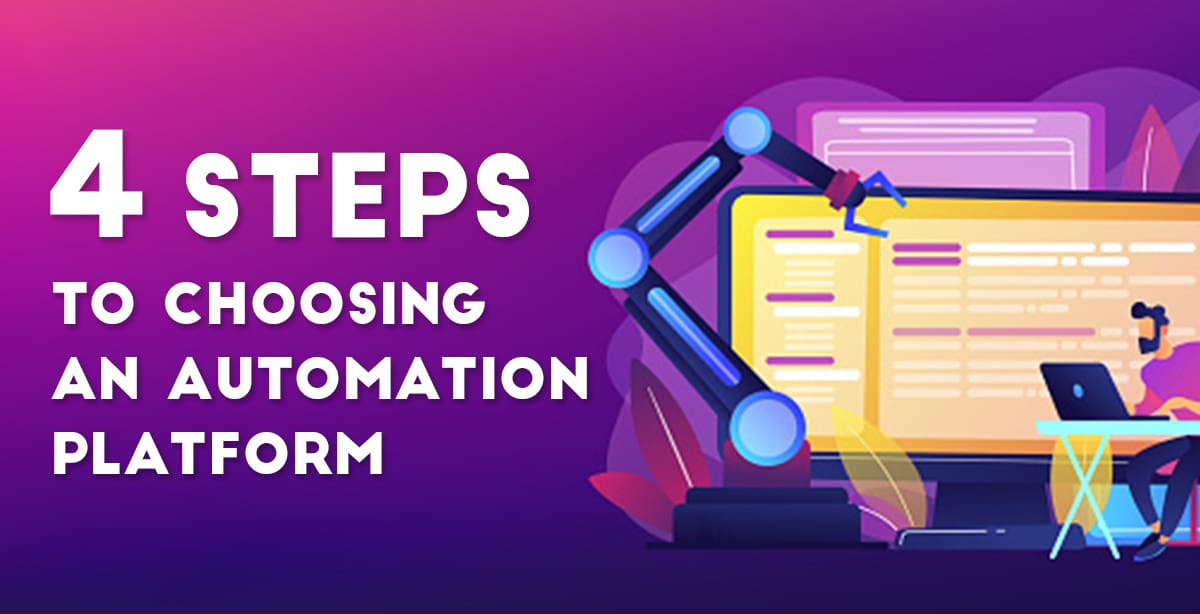A marketing automation software tool is an advanced platform designed to help marketers capture leads, nurture them further down the sales funnel, and analyze lead behavior and campaign performance. Marketing automation tools are an essential resource for B2C and B2B marketing and sales departments looking to grow their business. It is an out-of-the-box method for harnessing customer data from multiple sources and developing marketing strategies and tactics that work across different mediums. This includes several categories of functionality: email, social media, website traffic, multi-channel marketing, and analytics.
The growth of digital channels and the variety of devices has made it challenging for marketers to accurately target prospects with the right messages, on the right devices, at the right times. In today’s world, we are all managing more of the buying process ourselves by researching brand websites and social channels without ever speaking to a sales rep. To be an effective brand, marketers must be creative, directed and aligned with all sales goals. They also need to have a great visibility into customers’ behaviors. To get started, check out this list of best marketing automation platforms by Capterra.
According to MarTech Today, when faced with challenging dynamics and an increasing ROI pressure, companies of all sizes can gain these benefits from a marketing automation platform:
- Improved marketing efficiency. When you automate time-consuming and manual tasks, whether it’s creation, management, personalization or sales workflow, you gain not only more time back into your workday, but an increase in productivity throughout each task. This will create more time for advanced projects.
- Enhanced ability to create more qualifying leads. Automation can analyze subscribers’ behavioral data and identify those who engage more for an augmented lead list. By targeting such subscribers in an email campaign, you can create more efficient and successful results.
- Multichannel view of contacts. Marketing automation platforms are integrating multiple channels to create comprehensive profiles of a contact’s behavior. This includes such characteristics as whether they come from social but buy through email, whether or not they are viewing all on mobile, etc.
- Cohesive sales and marketing goals. For B2B, automation software can help align sales and marketing efforts to ensure that sales reps are working with sales-ready leads. Once a lead is qualified, sales and marketing can become one team. Marketing will work on building a relationship with a new lead that will allow sales to focus their efforts on the most highly qualified leads.
- Improved audience conversion and ROI. Many studies have shown that using a marketing automation tool can increase conversions. According to Invesp, marketing automation drives up to a 14.5% increase in sales productivity. In studies, 80% of marketing automation users saw an increase in the number of leads, and 77% achieved an increase in conversions. Further, 91% of marketing automation users agree that it is “very important” to the overall success of their online marketing behaviors.
Virtually all marketing platforms offer SaaS-pricing, which means that the software is licensed by the customer but hosted by the vendor. Pricing is often based on the number of contacts in the marketing database, the number of email marketing messages sent each month and/or the number of users. Some require month-to-month pricing, while many require annual contracts that could offer discounts in exchange.
Before taking the necessary steps to finding an automation platform, you need to understand your current marketing processes and know how to measure success. In addition, identifying where you need to improve will help you determine which marketing automation tool to choose for your organization. Below, we’ll outline four steps to finding the right marketing automation fit for your business and goals, according MarTech Today’s B2B Marketing Automation Platforms: A Marketer’s Guide report.
Step 1: Do You Need a Marketing Automation Platform?
Evaluating your company’s business needs, staff capabilities, management support and financial resources will indicate whether or not your organization needs an automation platform. Use the following questions as a guideline to help your company determine if the answer is a yes or a no.
- Have you outgrown your current marketing system?
- What marketing automation capabilities are most critical to your business?
- What kind of marketing platform do you need?
- What are your company’s goals?
- How will a marketing platform integrate with your existing tools and programs?
- Will management support the purchase?
- How will you completely assess the cost?
- Will you need extra staff?
- How will you measure success?
Marketing automation is often the solution for companies that are growing rapidly and need to scale their efforts quickly and efficiently. If you are using multiple programs as a source of data or using an email marketing tool that doesn’t deliver, it’s time to upgrade.
Automation platforms are not a one-size-fits-all solution, so it is key to research and find the best solution. Is inbound marketing (social media, blogging, SEO) more important than outbound (email)? Are reporting and analytic features something your company needs? Is lead scoring an important part of your process? Are segmentation and personalization big parts of your strategy? Once these are answered in detail, you can then start to identify which platforms would best suit your needs.
Step 2: Identify and Contact Appropriate Platforms
Once you’ve determined that your company needs a marketing automation tool, spend time researching each platform’s capabilities. Make a list of all the automation proficiencies you currently have, those you would like to have and those you can’t live without. Once you have your list, do some research.
True marketing automation platforms will have key features that drive results. Make sure your top choices will deliver on the most important and frequently used features and that they will continue to add new functionalities to stay current.
A solid platform will have its own array of technology providers that will integrate through each provider. A system usually can’t be all things to all users, but it should be hitting some integration marks.
After you determine which platforms meet your wants, reach out to those who do. It’s key here to let the vendor know how you plan to use marketing automation, including high-level goals and KPIs, as well as how you will evaluate the success of your marketing automation efforts. Once you receive an RFP back, you should be able to narrow it down to a few that you will want to demo.
Step 3: Scheduling The Demo
Set up demos with your list of vendors within a short time frame to stay relevant and help make solid comparisons. Do make sure that all potential internal users are on the demo call, since they will be using the marketing automation platform daily. When walking through the demos, make sure you pay attention to how easy and user-friendly the platform is to use. The easier it is to use, the more efficient your team will be.
A vendor that is able to understand your company and your goals with a positive attitude is something to look for. You also want to note if they are showing you all the must-haves on your list. If they aren’t doing all of these things, then they are not the right vendor for you.
Other questions to ask include, via MarTech Today:
- Does the platform integrate into all other tools in your organization?
- What does the onboarding process look like?
- What is the implementation process, and how long does it take?
- What support would your team get with the general plan?
- Is there a free trail program?
- What new features are being implemented, and what is the time line?
- Is the platform secure?
You’ll want to consider requesting specific demos on daily tasks and walk through them in detail. Based on your organization, examples could include:
- Creating and editing a new email from scratch
- Importing and editing leads
- Data management, audience clean-up
- Creating and editing a new landing page from scratch
- Creating a simple, cohesive campaign that includes email, audience list and landing page
- Exporting a comprehensive report
- Seeing analytic dashboards and reports
- Walking through all features and capabilities
When the demos are complete, you’ll have an idea of which few options your team will most benefit from. Once your list is narrowed to just a couple, more research is needed.
Step 4: Read Reviews and Confirm Contract
Just like deciding to purchase anything online, read reviews on the platform and even reach out to companies like yours to see if they enjoy the platform. Ask around at conferences or events for an in-person deep dive into what platforms work best and how they are being used firsthand.
According to MarTech Today’s intelligence report, consider asking another business user these basic questions before signing:
- Why did you license a marketing automation platform?
- Did you migrate to the platform from another? If so, how was the conversion process?
- Why did you select this platform over other options?
- How long did it take for the system to implement?
- Has this platform lived up to your expectations? If so, why?
- Do you always receive the level of support you need?
- What CRM system is this platform integrated with? Are you happy with that integration and process?
- Were there any surprises that you wish you’d known about beforehand?
- Where have you seen the most success? The biggest challenges?
- How are you measuring your own personal success within the program?
- How responsive is customer service?
- What is the most useful, actionable report the platform can generate?
- Do you wish the platform would do anything differently?
- Why would you recommend this platform to my team?
Although not all platforms require an annual contract, many do. Once you make a decision, make sure all your ducks are in a row. Confirm that all technology and support are covered in the contract, ask about any additional fees, and ask about custom design costs and any other additional pricing and/or support you’ll need throughout the contract.
Marketing technology continues to be a driving priority for businesses across the board, driven by increased demands in creating a solid customer experience. Marketing automation platforms are the backbone of marketing operations. Vendors continue to expand training programs and create add-on plans that serve all types of businesses. Many have roots in email marketing, which will continue to be a core function. However, as the platforms grow and expand, there will be a constant flow of evolving features that you and your company can and will benefit from.
Obtaining all the answers from your chosen platform up front — and having them in writing — will ensure fewer surprises or additional costs down the line. To identify the right marketing automation tool for your company, it is imperative that you understand your current marketing processes, recognize where you need to improve, and know how to measure success. By completing all the necessary steps and getting all the right questions answered, your persistent research can come to a successful conclusion and result in a greater long-term ROI, increased business productivity and a longer business life span.

